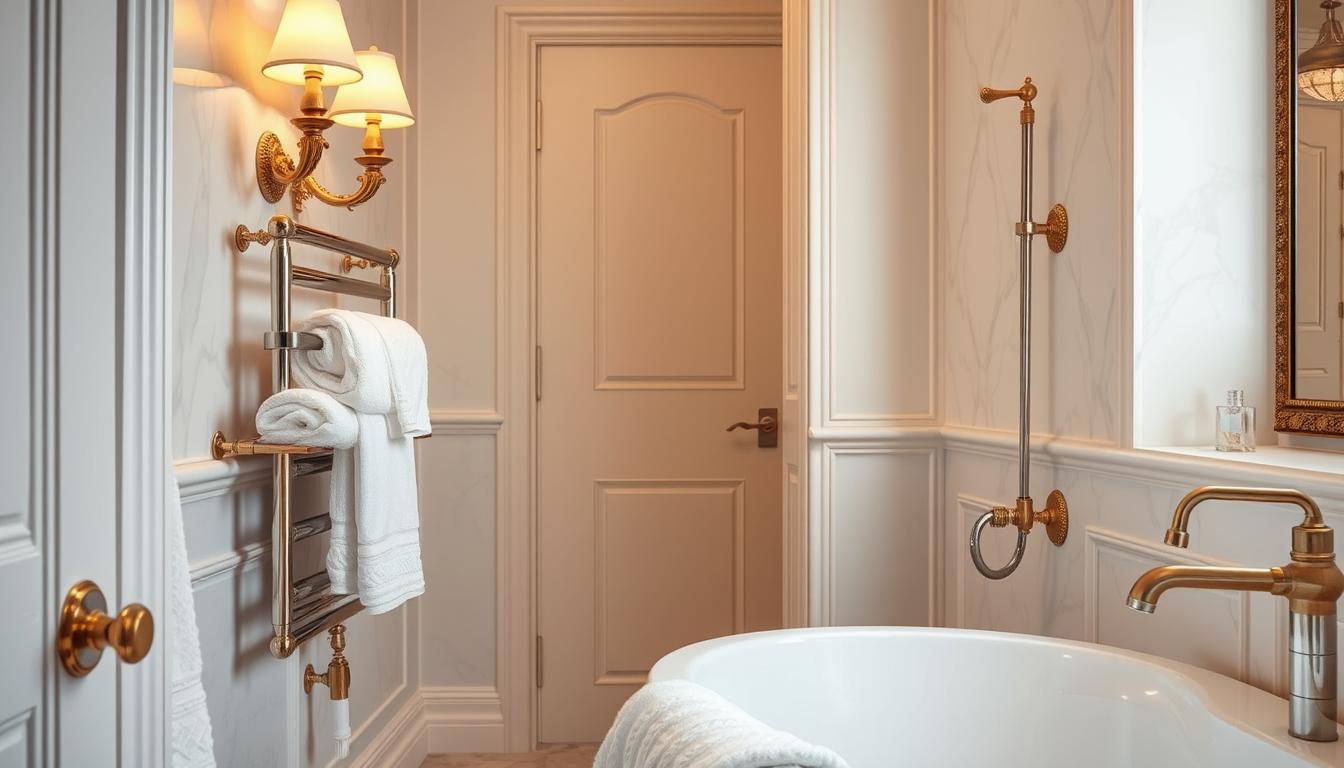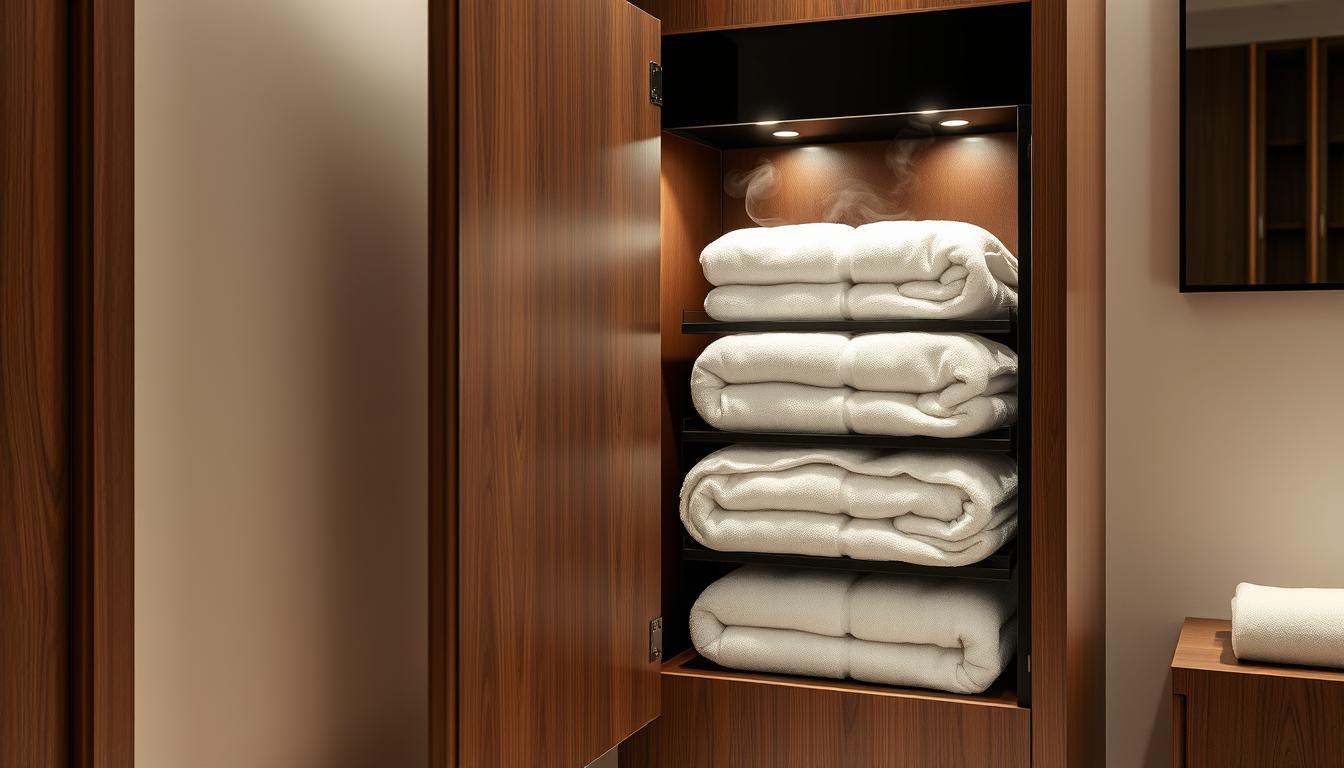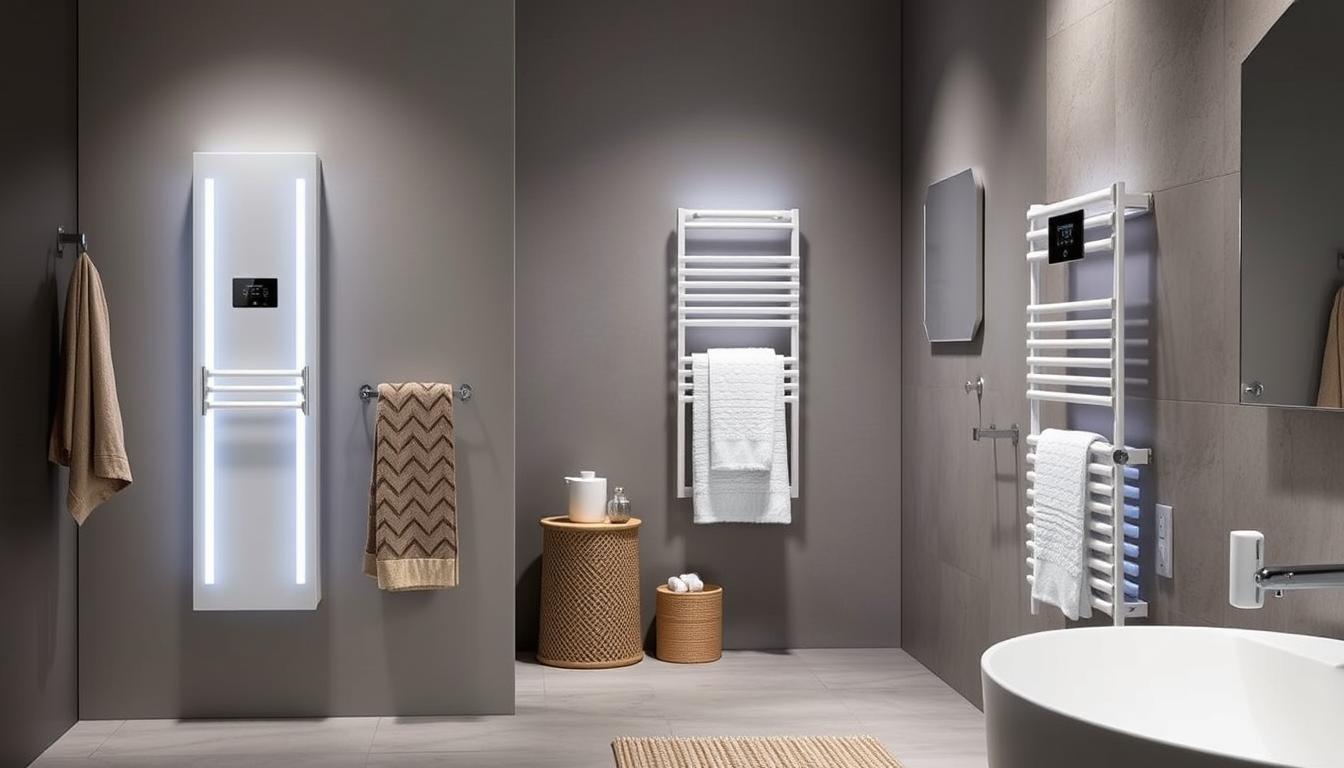Amidst the evolving trends in bathroom comforts across American homes, the emergence of bidets signifies a leap toward sophisticated living. Central to this bathroom revolution is the bidet valve, an undervalued yet critical component that ensures the seamless functionality of bidets. It’s these valves that discerningly regulate water flow and temperature, providing users with ultimate control for an invigorating bidet experience.
When one delves into the realm of bidet plumbing parts, the importance of a well-chosen bidet valve becomes abundantly clear. It’s the unsung conductor, orchestrating the flow, the warmth, and the convenience that a modern bidet offers its user. Whether you are retrofitting an existing bathroom with the latest in bidet technology or installing a new setup altogether, understanding the ins and outs of bidet water control is indispensable. This guide is meticulously crafted to enlighten you on selecting the ideal bidet valve, one that harmonizes with your personal preferences and bathroom aesthetics.
Key Takeaways
- Grasping the significance of the bidet valve in water control and user comfort
- Insights into the selection process of bidet plumbing parts for new or existing setups
- Considerations for compatibility and features to enhance the bidet experience
- Understanding the impact of different bidet valve types on overall bathroom functionality
- Appreciating the relevance of a bidet valve as a pivotal piece in modern bathroom design
- Potential for elevating personal hygiene and environmental stewardship with the right valve choice
Embracing the Bidet Trend in American Homes
The allure of European luxury and the pursuit of enhanced personal hygiene have bolstered the bidet trend within the American market. Considered an unfamiliar concept to many just a decade ago, these fixtures are now sprouting in bathrooms across the United States, heralding a new era of toiletry. Below, we delve into the dynamics propelling this upswing in acceptance and address lingering myths clouding the bidet’s repute.
The Rising Popularity of Bidets in the US
Long established in regions such as Europe and Asia, bidets are rapidly becoming a mainstay in American bathrooms. This shift can be attributed to a growing awareness of the bidets’ hygienic benefits and the continuous influx of innovative bidet parts and accessories that cater to a modern lifestyle. Additionally, consumers are becoming more conscious of environmental impacts, choosing bidets as a water-conserving alternative to traditional toilet paper.
Understanding the Bidet’s Functionality
At its core, the bidet is ingeniously designed for post-toilet use, providing a stream of water for thorough personal cleaning. This fine-tuned functionality hinges on the quality of bidet parts, which range from basic nozzles to state-of-the-art adjustable water controls. With the right setup, users experience a level of hygiene that far surpasses what can be achieved with paper products alone—a fact which contributes significantly to the bidet’s escalating popularity.
Common Misconceptions About Bidets
Despite their increasing ubiquity, misconceptions about bidets persist. Some people mistakenly equate them to other bathroom fixtures, such as sinks, due to their water basins and faucets. Others fail to discern the differences between standalone bidet basins and bidet toilet combinations. Clarifying these distinctions is essential for understanding the functionality and benefits of each type, and fostering greater acceptance of bidet use in American culture.
As the American interest in bidets continues to climb, the market adapts, bringing innovations and a wider range of bidet parts to facilitate installation and enhance the user experience. With continued education and exposure to the advantages of bidets, this upward trend is poised for even greater growth in the years to come.
Comprehensive Bidet Basics: What You Need to Know
In the realm of personal hygiene, the introduction of the bidet faucet, bidet attachment, bidet sprayer, and bidet accessory has revolutionized the way we consider bathroom cleanliness. Dating back to the 1700s, bidets heralded a new era alongside the development of modern flush toilets. Originally resembling lower sinks, these standalone fixtures are known for their wide basins, facilitating a comfortable and effective cleaning experience, complete with a dedicated water spout and efficient drainage system.
Today, however, we are witnessing an evolution in bidet technology, marked by a variety of bidet attachments that equip existing toilets with superior functionality and precision. Featuring angled jet streams, these innovative devices aim to deliver targeted cleansing, ensuring a heightened level of hygiene. Furthermore, the choice of materials has expanded; traditional standalone bidets and integrated bidet toilets often feature durable porcelain or vitreous china, while bidet seats are generally constructed from high-quality plastic for ease of installation and maintenance.
- Standalone Bidets: Boasting timeless elegance and requiring separate plumbing, they remain a choice for many seeking a dedicated cleansing space.
- Bidet Attachments: Enhance existing toilets with sprayers for posterior and feminine washes, boasting easy DIY installation.
- Handheld Bidet Sprayers: Offer a portable solution, empowering users with flexibility and control over the cleansing experience.
- Bidet Accessories: Encompass items such as heated seat upgrades, night lights, and deodorizers, adding luxury to the fundamental bidet design.
Whether you’re renovating a bathroom or simply striving to upgrade your hygiene practices, incorporating a bidet into your home is a decision that affords both comfort and cleanliness. By understanding the basics of each bidet accessory and its purpose, consumers can make informed decisions that align with their individual needs and preferences, ensuring an optimal balance between functionality and elegance in modern bathroom design.
Determining the Best Type of Bidet For Your Needs
Finding the ideal bidet requires understanding the different bidet hardware options available in the market, along with their respective features and benefits. Whether you’re seeking to replace a bidet valve or pondering which of the various types of bidets suits your bathroom best, the subsequent sections delve into the details to aid your decision-making process.
Exploring Standalone Bidets and Their Features
Standalone bidets are the traditional option, epitomizing classic European style with modern refinements. They demand a dedicated space in your bathroom and involve a specific plumbing setup, but the payoff is a full-fledged, luxurious bidet experience.
Analyzing the Bidet Seat Attachment Options
Bidet seat attachments have revolutionized the way bidets integrate into contemporary homes. These ingenious devices can retrofit existing toilets, enabling features like adjustable spray patterns, temperature control, and eco-friendly water usage—with minimal disruption to your current bathroom design.
Combination Bidet Toilets: The Modern Choice
The futuristic hybrid of a combination bidet toilet infuses convenience and cutting-edge technology into your bathroom. Merging the functionality of a bidet with the standard flushing toilet, these sophisticated units often come with built-in bidet replacement valves and other high-tech perks, offering an all-in-one solution for modern homes.
| Feature | Standalone Bidet | Bidet Seat Attachment | Combination Bidet Toilet |
|---|---|---|---|
| Installation Requirements | Separate plumbing, dedicated space | Attaches to existing toilet setup | Replaces entire toilet unit |
| Control Options | Manual knobs or levers | Remote or side panel controls | Integrated control systems |
| Customization | Limited to models and finishes | Adjustable pressure & temperature | Personalized user settings |
| Space Efficiency | Requires additional space | No extra space needed | No extra space, all-in-one unit |
| Technological Features | Basic functionality | Varies by model, from basic to high-tech | Most likely to have advanced features |
Bidet Valve Selection: Navigating Your Choices
When venturing into the realm of enhanced bathroom functionality, selecting a bidet attachment or bidet replacement valve is less daunting when you know what to look for. Factors such as cost, construction material, design aspects, and cutting-edge technological features must be considered to secure a product that aligns with both your personal needs and bathroom setup. To simplify the decision-making process, let’s explore the various considerations for choosing the right bidet valve, ensuring effective bidet water control and user satisfaction.
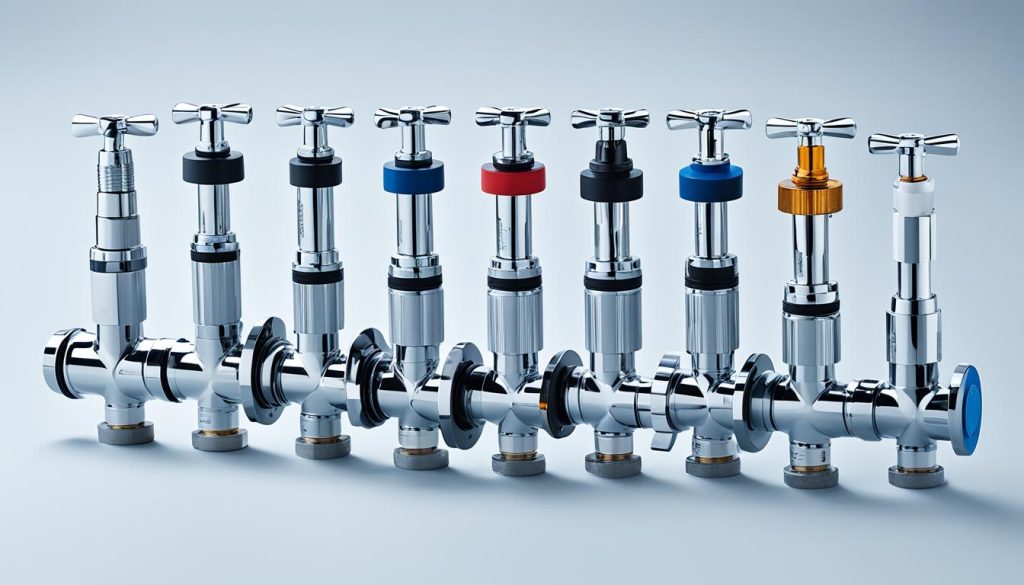
The scope of options available in the market is remarkable, ranging from more affordable manual bidet attachments to state-of-the-art models that encapsulate luxury at its finest. For the budget-conscious yet quality-seeking individuals, manual bidet seat attachments serve as an economical way to introduce water cleansing into your routine. On the other end, deluxe bidet seats are equipped with features such as self-cleaning nozzles, variable water temperature, adjustable water pressure, and the coveted heated seat—turning a simple bathroom visit into a serene experience.
Those opting for standalone bidets or integrated bidet-toilet combinations will encounter a variety of materials and designs. From sleek and modern ceramics to antimicrobial plastics, it is pivotal to choose a bidet replacement valve that complements these materials and meets the sophistication of the technology embedded within your bidet system. Whether you prefer a minimalist look or a more intricate setup, the harmony between the bidet’s design and its valve is crucial for a cohesive and efficient outcome.
- Budget considerations and finding the balance between cost and desired features
- Assessing the compatibility of bidet valves with your existing bathroom aesthetics and technology
- Importance of choosing a valve that offers seamless bidet water control for an optimal cleansing experience
Ultimately, taking the time to understand the intricacies of each option will lead to an informed purchase, aligning with your lifestyle and budget while enhancing your bathroom’s convenience and hygiene. Bearing in mind the extensive range of bidet attachments and the precision involved in selecting a bidet replacement valve, you are now equipped to make a choice that promises both comfort and functionality.
Installation Insights: Bidet Valves and Plumbing Requirements
When considering the enhancement of your bathroom with a bidet, understanding the intricacies of installation is paramount. The process varies significantly between different bidet models, each having its own set of plumbing requirements and challenges. Proper installation ensures the effective functioning of the bidet water control system and, consequently, an optimal user experience.
The Necessity of Proper Plumbing for Standalone Bidets
Opting for a standalone bidet involves a deeper level of commitment in terms of plumbing. Such models usually require a dedicated water supply line and may even necessitate the restructuring of existing bathroom plumbing. These bidets provide elegant and traditional aesthetics but are often more complex in bidet installation demands.
DIY vs. Professional Installation of Bidet Valves
For the more tech-savvy or those who revel in a weekend DIY project, installing bidet seat attachments may be a feasible task. These products typically come with detailed manuals and are designed for a streamlined installation process. However, for sophisticated setups like standalone bidets or advanced combo bidet toilets, a professional plumber’s expertise is invaluable. This ensures that all bidet plumbing parts are correctly fitted and function as intended, avoiding costly errors or malfunctions.
Valve Compatibility and Bathroom Layout Considerations
To avoid any unforeseen installation hiccups, it’s crucial to assess the compatibility between the desired bidet valve and your existing plumbing. Additionally, bathroom layout plays a significant role. The size and placement of the bidet should complement your space practically and aesthetically.
| Type of Bidet | Plumbing Requirements | Installation Considerations | Suggested Installation Method |
|---|---|---|---|
| Standalone Bidet | Dedicated water line | Space for additional fixture, restructuring | Professional |
| Bidet Seat Attachment | T-Valve Adapter | Accessible connection to toilet tank | DIY or Professional |
| Combination Bidet Toilet | Complex plumbing integration | Comprehensive bathroom renovation | Professional |
Bidet Valve Specifications and What They Mean for You
When considering the upgrade to a bidet, understanding the intricacies of bidet parts, particularly the valve specifications, is essential for a satisfying experience. The functionality and reliability of your bidet are heavily influenced by the type of valve it uses. This section delves into what these specifications mean for the user and how they contribute to the overall performance of your bidet accessory.
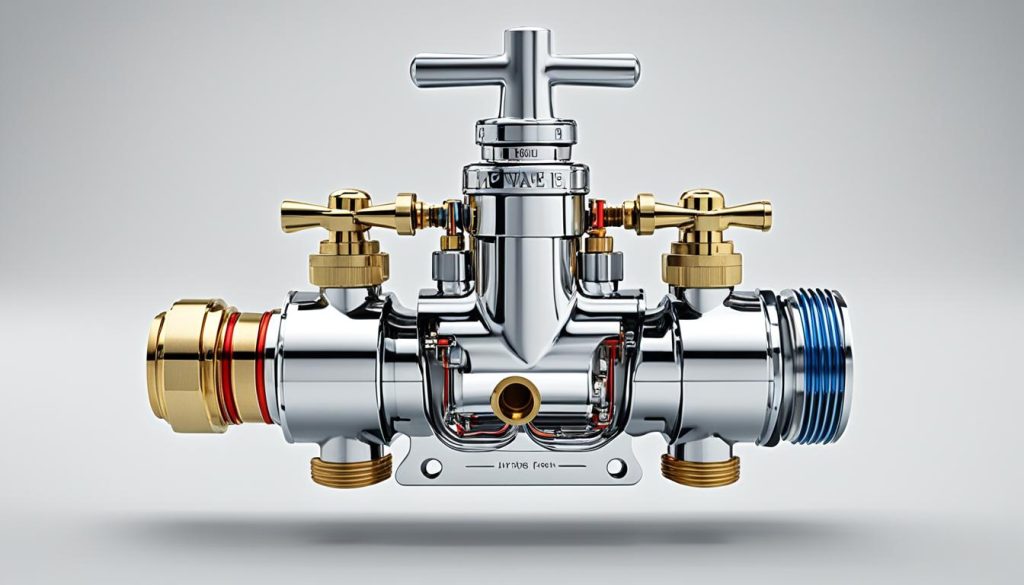
Understanding Valve Material and Construction
The material and construction of a bidet valve are the keystones that determine its durability and effectiveness. Most valves are fabricated from high-quality materials like plastic or metal, each offering a balance of longevity and performance. Metal valves are often favored for their robust nature and resistance to wear, while plastic valves provide a cost-effective option without compromising on quality.
A Guide to Bidet Valve Features and Mechanisms
Bidet hardware has evolved over time, incorporating features that enhance user convenience and comfort. For instance, valves that include self-cleaning mechanisms save time and ensure a hygienic status quo. Other advanced features might involve adjustable pressure for a tailored cleaning experience and temperature controls for additional comfort. These versatile functions are not only practical but also add a touch of luxury to your routine.
The Importance of Water Pressure Compatibility
A crucial aspect often overlooked is the compatibility of the bidet valve with your home’s water pressure system. A mismatch can lead to subpar operation, potentially disrupting the bidet’s functionality or even causing damage. Confirming that the bidet accessory can handle the specific water pressure in your home is an essential step toward a seamless bidet experience.
| Feature | Description | User Benefit |
|---|---|---|
| Durable Materials | Choice of metal or plastic designs for different preferences. | Reliability and a longer lifespan of the bidet system. |
| Self-Cleaning Mechanism | Automated cleaning of the nozzle after each use. | Hygienic conditions and reduced maintenance effort. |
| Temperature Control | Ability to adjust the temperature of the bidet’s water. | Enhanced comfort, especially in cold seasons. |
| Adjustable Water Pressure | Customizable water force for a gentle or more focused clean. | Personalized use and comfort tailored to individual needs. |
| Water Pressure Compatibility | Valves designed to operate within specific water pressure ranges. | Optimal functionality and avoidance of operational issues. |
Advantages of Choosing the Right Bidet Valve
The quest for personal hygiene has led to the innovation of various bathroom fixtures, one of which is the bidet. Tucked beneath this modern convenience is an essential component—the bidet valve. Opting for the right bidet valve unlocks multiple bidet valve benefits, such as precise control over water flow and temperature, ensuring a hygienic experience that transcends basic requirements.
Integration of bidet valves into bathroom setups is not only a step towards impeccable cleanliness but also a nod to environmentally friendly practices. The reduced need for toilet paper directly correlates to fewer trees cut down for paper production, supporting a greener planet. Furthermore, when designed for efficiency, these valves contribute to conserving water, which aligns with sustainable living goals.
- Enhanced hygiene through better personal cleansing
- Temperature control for a more comfortable experience
- Reduced toilet paper usage, easing the toll on the environment
- Cost savings from diminished need for paper products
- Efficient water usage adhering to eco-conscious standards
When contemplating an upgrade to your bathroom, contemplating the bidet valve benefits is crucial. Not only do you elevate your personal hygiene, but you also make a commitment to an environmentally friendly choice that has enduring impacts on our planet’s health. The right bidet valve doesn’t only serve its primary function; it becomes a cornerstone of a lifestyle that values cleanliness, conservation, and consciousness.
The Impact of Bidets on Hygiene and the Environment
Exploring the realm of modern bathroom fixtures, the bidet stands out not only for its capacity to elevate personal hygiene but also for its considerable environmental benefits. This fixture has gained commendable traction in the United States, aligning perfectly with contemporary concerns surrounding sustainability and health. Prominent for their ability to provide unparalleled cleanliness, bidets are also instrumental in spearheading a movement towards eco-friendly living, fostering both water conservation and a decrease in disposable waste.
Personal Hygiene Benefits of Regular Bidet Use
Bidets are heralded for their superior hygienic advantages, which starkly overshadow the traditional use of toilet paper. They furnish users with a gentle, thorough cleaning experience, minimizing the risk of bacteria spreading and ensuring a level of freshness unattainable by paper products. The bidet’s capacity to cleanse with water also stands as a pinnacle of intimate care, particularly for those with sensitive skin or mobility issues.
Environmental Considerations: Reducing Toilet Paper Waste
The bidet’s environmental impact is notably commendable. By significantly curtailing the need for toilet paper, bidets directly cut down on tree harvesting and the voluminous water utilized in the production process of paper goods. This reduction in waste not only eases the strain on landfills but also echoes the call for sustainable daily practices that prioritize the longevity of our natural ecosystems.
Long-term Cost Savings with Efficient Water Use
When considering a water-saving bidet, savvy consumers appreciate not just the present-day comforts, but the long-term cost effectiveness it promises. Efficient bidet valves and controls play a crucial role in managing water use, which, in turn, can lead to a decrease in monthly utility bills. The investment in a bidet may present an up-front cost, yet it is an investment that continues to pay dividends in reducing ongoing expenses and supporting a greener lifestyle.
